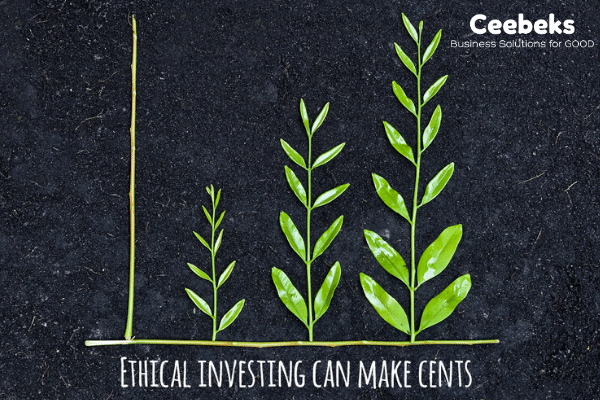Ethical investing has gone from backwater to mainstream over the past decade, as Australians discover they can make the world a better place whilst have the potential to make money at the same time. Whether you choose to support a sustainable future, animal welfare or strong corporate governance, it has never been easier to align your values with your investments.
Consumer demand for ethical investments doubled in the two years to December 2014, with total assets under management of $31.6 billion. Growth was supported by strong investment returns and growing interest from superannuation funds, managed funds and Financial Advisers.1 In the early days it was often assumed that investing ethically would limit your options and reduce returns. However, over the past decade, ethical Australian share funds have provided better returns than both the ASX300 Index and the average large cap Australian equities fund.2
What is an ‘ethical investment’?
Ethical investment, or ‘socially responsible’ or ‘sustainable investment’, is the term of a process that takes into account environmental, social, corporate governance or other ethical concerns. It’s a process that begins with your personal values. For example, you may wish to include investments in your portfolio that support the development of renewable energy or to avoid companies with a poor health and safety record. Australians who want to invest ethically can do so in a number of ways which your Financial Adviser will be able to help guide you through. You can buy direct shares in companies that align with your values or invest in an ethical managed fund. If you are a member of a public offer superannuation fund, it may offer an ethical investment option on its investment menu.
A great way to incorporate your personal values into your broader investment portfolio is to invest via a managed fund. But before you do, it’s important to understand the different methods ethical fund managers use to achieve their investment objectives.
Some funds screen out companies in controversial industries such as tobacco, gaming or testing their products on animals. Some select only sustainable companies in sectors such as clean energy or green property; while still others aim to raise corporate standards by investing in companies that, are ‘best in class’, within their industry in terms of corporate governance.
It is also becoming increasingly common for ethical investors and fund managers to use their ownership to engage with companies on issues such as executive pay or environmental standards.
Here at CeebeksTM Business Solutions for GOOD we can help you identify ethical investments tailored to your personal requirements that have the potential to generate strong financial results.
Did you know…..
That by simply choosing to work with us means that you too will be contributing to this growing movement of businesses changing the world. For example, when we help a new business startup we give a family in Kenya a small herd of goats to help them start their own goat farming business or when we complete an application for a home loan we provide the gift of shelter to a family without any.
- Responsible Investment Benchmark Report 2015, Responsible Investment Association Australasia, responsibleinvestment.org/wp-content/uploads/2015/08/2015_Benchmark_Report_Aust_FINAL.pdf
- Responsible Investment Benchmark Report 2015, Responsible Investment Association Australasia, responsibleinvestment.org/wp-content/uploads/2015/08/2015_Benchmark_Report_Aust_FINAL.pdf


